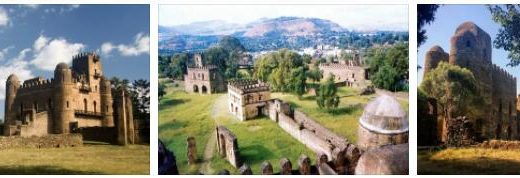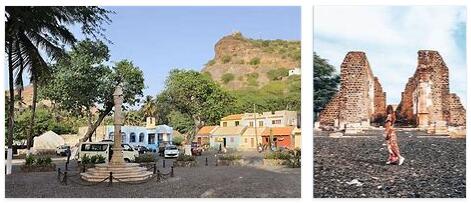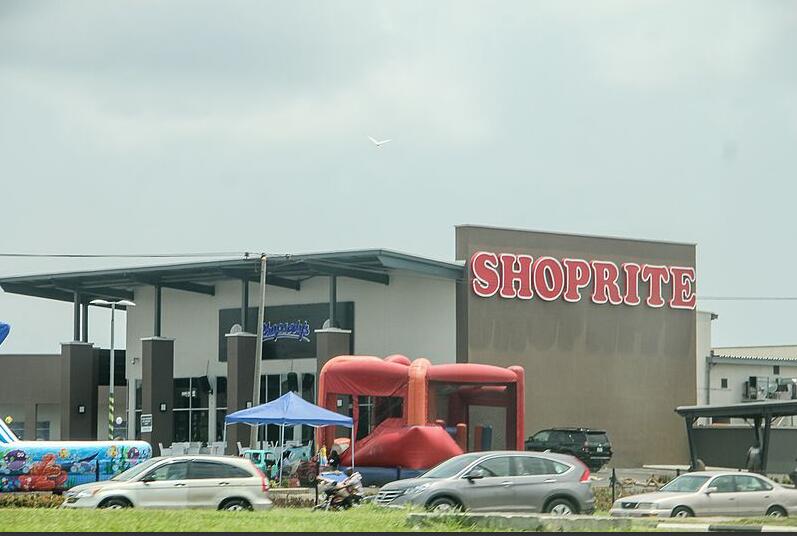Ivory Coast 1973
A constitutional and political stability that finds almost no confirmation in the other countries of French-speaking Africa has characterized the life of the Ivory Coast d’A. since independence (7 August 1960); power is firmly in the hands of President Félix Houphouët Boigny, who led the country to independence and is one of the most notable personalities in contemporary African history, leader of the Democratic Party of the Ivory Coast d’A. (PDCI), a single party that carries out organizational and promotional functions as an instrument of a substantially paternalistic government; the Ivory Coast d’A. it has achieved notable development, albeit within the framework of an economic model criticized by some as it is based on the country’s close dependence on technical and economic aid, and on foreign investments, particularly French.
In the first years after independence there was some sign of opposition from student and unionist elements, some of whom were arrested in 1961; anti-government plots were also denounced and in 1963 there were two waves of arrests. Consolidating in power, the government introduced important social reforms in the modern sense in 1964, particularly in family law. Since 1965, political prisoners have been gradually amnestied and the government, listening to criticism, has begun to replace part of the foreign elements, mostly French, with local elements in the bureaucracy; young Ivorian technocrats were also included in the government in 1966: K. Bedia, Minister of Finance, M. Diawara, Minister for Economic Affairs and A. Sawadogo, Minister of Agriculture. Some signs of internal restlessness occurred again in 1968-69, also due to the influence of French events, with student strikes and demonstrations against foreigners, who are accused of stealing jobs from the Ivorians; in 1970 the government actually introduced a restrictive law on immigration from neighboring African countries. In June 1973 a conspiracy of young officers was uncovered; the perpetrators were tried but the death sentences were commuted. In June 1973 a conspiracy of young officers was uncovered; the perpetrators were tried but the death sentences were commuted. In June 1973 a conspiracy of young officers was uncovered; the perpetrators were tried but the death sentences were commuted.
According to eNingbo Countries and Continents , the foreign policy of the Ivory Coast d’A. – directly and entirely led by President Houphouët-Boigny – has always maintained moderate and pro-Western positions, in particular pro-French (diplomatic relations with the Soviet Union have only been established since 1966), showing itself suspicious and substantially averse towards the pan-Africanism and instead promoting agreements in the francophone sphere. To the Ivory Coast d’A. head of the regional organization called the Council of Understanding (created in 1959), which has proved its efficiency and vitality (since 1966 Togo has been added to it). Houphouët-Boigny played a leading role in the conclusion of political and economic agreements between the countries already dependent on France (from the Brazzaville group to the African and Malagasy Union, to the Joint African and Malagasy organization in which Zaire was also able to enter when the disputed M. Ciombè was in government). For this initiative and for all of his foreign policy Houphouët-Boigny clearly opposed K. Nkrumah, whose dismissal, therefore, significantly improved relations between Ivory Coast d’A. and Ghana; between 1966 and 1967 there was also a crisis in relations with Guinea. Other initiatives, however discussed, by President Houphouët-Boigny were the recognition in 1968 of the republic of Biafra – with a consequent break, then overcome, with Nigeria – and the proposal, put forward in April 1971, of a dialogue between states Africans and South Africa. Since 1973 the Ivory Coast d’A. has tried to diversify its international economic relations more clearly, renegotiating agreements with France and signing new ones, among other things with Great Britain and Japan; since 1974 attempts have been made to free the country’s economy from heavy foreign interference, while excluding any indiscriminate nationalization. In November 1975 Houphouët-Boigny was re-elected president (the VI Congress of the PDCI was held in October).
The difficult path towards social reconstruction
The newfound political stability seems to have allowed the country to overcome the post-electoral crisis of three years ago, allowing the Ivory Coast’s economy to resume the intense pace that characterized it in the past.
The reconstruction of the country’s infrastructure continues, which goes hand in hand with the rehabilitation of the social fabric. Despite this, the Ivory Coast continues to be the scene of serious violations of human rights, episodes of revenge and a general climate of social instability that distances the goal of reconciliation between the parties. The western region of the country, partly loyal to Gbagbo, is still unpredictable and often subject to attacks. In March 2013, for example, the border villages of Zilebly and Petit Guiglo were stormed and set on fire by an armed group in the middle of the night. The temporary abandonment of properties, i.e. homes and cultivated land (the only source of livelihood for many families), among other things, it has rekindled ancient territorial disputes and provoked new ones, raising the fear of growing tensions against local authorities and humanitarian crises. The Ivorian economic rebound, which registered a growth rate of 9.8% already last year, therefore reveals itself as a not very significant step in order to guarantee stability in the country without starting a process of national union. with impartial guarantees of safety. Another problem for the future stability of the country is the president’s precarious health conditions. Ouattara, at the age of 72, had to be absent from political life several times during 2014 to follow specialized treatments in France, leaving questions about his candidacy in the next elections, scheduled for the end of 2015.



